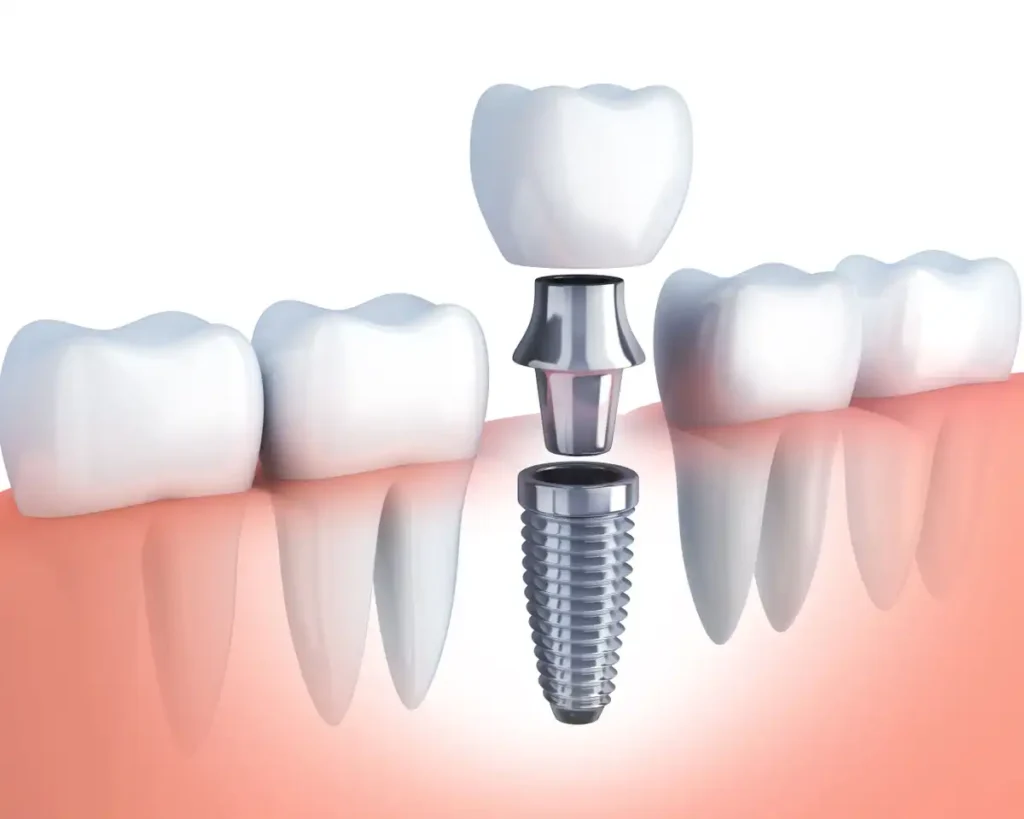Dental Implants: A Permanent Solution for Missing Teeth
- Expert Dental Care by Dr. Sagar Lokhande
- Service
- Dental Implants
Dental Implants
Missing teeth can affect more than just your appearance—they can impact your ability to chew, speak, and even lead to bone loss in your jaw. If you’re looking for a long-lasting, natural-looking solution, dental implants are the gold standard in tooth replacement. Unlike dentures or bridges, implants mimic the structure of a natural tooth, providing unparalleled stability and durability.
What Are Dental Implants?
A dental implant is a small, screw-shaped post made of biocompatible titanium that is surgically placed into the jawbone. The implant serves as a sturdy foundation for a replacement tooth (crown), bridge, or denture. Over time, the implant fuses with the jawbone through a process called osseointegration, providing a stable and permanent solution for missing teeth.

Parts of a Dental Implant
If you’re experiencing any of these symptoms, don’t wait! Early intervention can prevent further complications and save your tooth.
Why Choose Dental Implants?
Dental implants offer several benefits over traditional tooth replacement options:
- Permanent and Durable: Implants are designed to last a lifetime with proper care.
- Natural Look and Feel: The crown is custom-made to match the size, shape, and color of your natural teeth.
- Improved Chewing and Speech: Unlike dentures, implants won’t shift or slip, allowing you to eat and speak comfortably.
- Preserves Jawbone Health: The implant stimulates the jawbone, preventing bone loss and maintaining facial structure.
- No Impact on Surrounding Teeth: Unlike bridges, implants don’t require grinding down adjacent teeth for support.
Who Is a Candidate for Dental Implants?
During your consultation, we’ll conduct a thorough evaluation, including digital X-rays and 3D scans, to determine whether dental implants are the right solution for you.


Consultation and Treatment Planning
1Implant Placement Surgery
2Healing and Osseointegration
3Abutment Placement
4Crown Placement
5Dental Implants vs. Other Tooth Replacement Options
Feature | Dental Implants | Bridges | Dentures |
Durability | Lifetime | 10–15 years | 5–10 years |
Bone Preservation | Yes | No | No |
Maintenance | Brush and floss like natural teeth | Extra cleaning steps required | Requires adhesives and relining |
Stability | Permanent, no slipping | Fixed but affects adjacent teeth | Can shift or loosen |
Caring for Your Dental Implants
- Brush and Floss Daily: Clean your implant just like your natural teeth to prevent plaque buildup.
- Avoid Hard or Sticky Foods: Chewing on ice or hard candies can damage the crown.
- Use a Soft-Bristled Toothbrush: Gentle brushing prevents gum irritation.
- Schedule Regular Dental Check-Ups: Routine cleanings and exams help maintain the health of your implants and surrounding tissues.
Why Choose Pristine Smiles Dental Care for Dental Implants?


